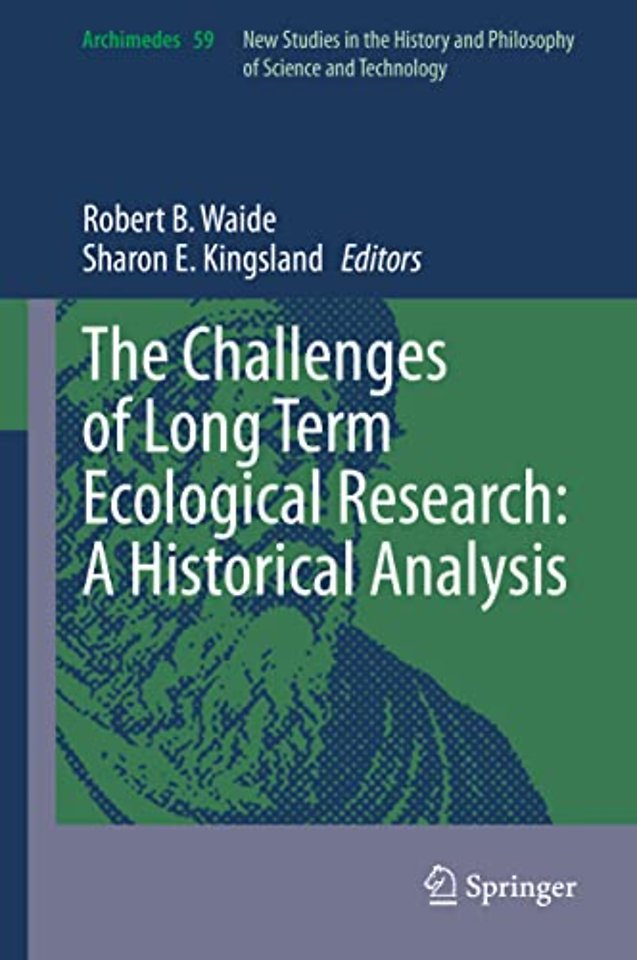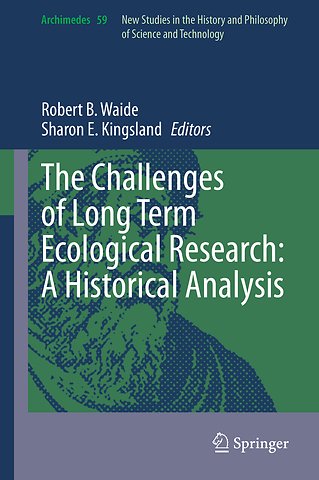The Challenges of Long Term Ecological Research: A Historical Analysis
Samenvatting
This volume explores the challenges of sustaining long-term ecological research through a historical analysis of the Long Term Ecological Research Program created by the U.S. National Science Foundation in 1980. The book examines reasons for the creation of the Program, an overview of its 40-year history, and in-depth historical analysis of selected sites. Themes explored include the broader impact of this program on society, including its relevance to environmental policy and understanding global climate change, the challenge of extending ecosystem ecology into urban environments, and links to creative arts and humanities projects. A major theme is the evolution of a new type of network science, involving comparative studies, innovation in information management, creation of socio-ecological frameworks, development of governance structures, and formation of an International Long Term Ecological Research Network with worldwide reach. The book’s themes will interest historians, philosophers and social scientists interested in ecological and environmental sciences, as well as researchers across many disciplines who are involved in long-term ecological research.
Specificaties
Inhoudsopgave
<p>1 Introduction<br></p>
<p> Sharon E. Kingsland and Robert B. Waide</p>
<p>Part I. Background and General Overview of the LTER program<br></p>
<p> 2 The Origins, Early Aspects, and Development of the Long Term Ecological Research Program</p>
<p> Sharon E. Kingsland, Jerry F. Franklin, and Robert B. Waide</p>
<p>3 Long-term Dynamics of the LTER Program: Evolving Definitions and Composition</p>
Julia Jones and Michael Paul Nelson<p></p>
<p>4 Sustaining Long-term Ecological Research: Perspectives from Inside the LTER Program</p>
<p>Merryl Alber, John Blair, Charles Driscoll, Hugh Ducklow, Timothy Fahey, William R. Fraser, John E. Hobbie, David M. Karl, Sharon E. Kingsland, Alan Knapp, Edward Rastetter, Timothy Seastedt, Gaius Shaver, and Robert B. Waide</p>
<p>Part II. An In-depth Perspective on Selected Sites: History, Foundations, and Partnerships</p>
<p>5 The Luquillo Experimental Forest: A Neotropical Example of the Interaction between Forest Conservation and Long-term Ecological Research<br></p>
<p> Ariel E. Lugo </p>
<p>6 Ecological Theory and Practice in Two Arid and Semi-arid Ecosystems: A Tale of Two LTER Sites<br></p>
<p> Debra P.C. Peters</p>
<p>7 Cold War Origins of Long-term Ecological Research in Alaska<br></p>
<p> Sharon E. Kingsland</p>
<p>Part III. Experiments in Broadening the Social Significance of LTER<br></p>
<p>8 How LTER Site Communities Can Address Major Environmental Challenges<br></p>
<p>Frederick J. Swanson, David R. Foster, Charles T. Driscoll, Jonathan R. Thompson, and Lindsey E. Rustad </p>
<p>9 Seeing the Invisible Present and Place: From Years to Centuries with Lake Ice from Wisconsin to the Northern Hemisphere<br></p>
<p> John J. Magnuson</p>
<p>10 Evolution of Social-Ecological Research in the LTER Network and the Baltimore Ecosystem Study<br></p>
<p> J. Morgan Grove and Steward T.A. Pickett</p>
<p>11 Integration of the Arts and Humanities with Environmental Science in the LTER Network<br></p>
Mary Beth Leigh, Michael Paul Nelson, Lissy Goralnik, and Frederick J. Swanson<p></p>
<p>Part IV. The Importance of Community in the Evolution of a Research Network<br></p>
<p>12 History of Comparative Research and Synthesis in the LTER Network<br></p>
<p> John J. Magnuson and Robert B. Waide</p>
13 A Retrospective of Information Management in the Long Term Ecological Research Program<br><p></p>
<p> Susan G. Stafford</p>
<p>14 Network Level Science, Social-Ecological Research, and the LTER Planning Process<br></p>
<p> Scott L. Collins</p>
<p>15 Evolving Governance in the U.S. Long Term Ecological Research Network<br></p>
<p> Ann Zimmerman and Peter M. Groffman</p>
<p>16 Understanding the Fundamental Principles of Ecosystems through a Global Network of Long-term Ecological Research Sites <br></p>
<p> Robert B. Waide and Kristin Vanderbilt</p>
<p>Index </p>
Net verschenen
Rubrieken
- aanbestedingsrecht
- aansprakelijkheids- en verzekeringsrecht
- accountancy
- algemeen juridisch
- arbeidsrecht
- bank- en effectenrecht
- bestuursrecht
- bouwrecht
- burgerlijk recht en procesrecht
- europees-internationaal recht
- fiscaal recht
- gezondheidsrecht
- insolventierecht
- intellectuele eigendom en ict-recht
- management
- mens en maatschappij
- milieu- en omgevingsrecht
- notarieel recht
- ondernemingsrecht
- pensioenrecht
- personen- en familierecht
- sociale zekerheidsrecht
- staatsrecht
- strafrecht en criminologie
- vastgoed- en huurrecht
- vreemdelingenrecht

